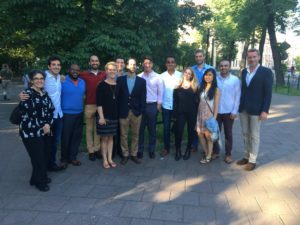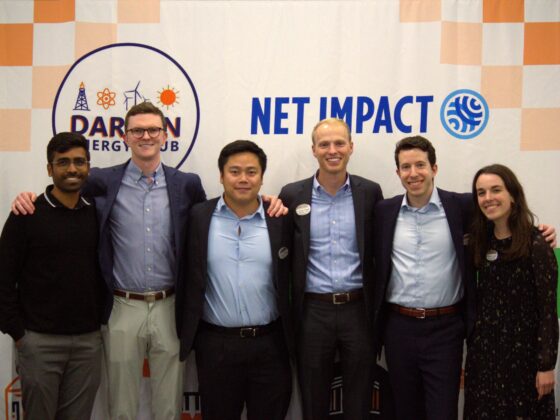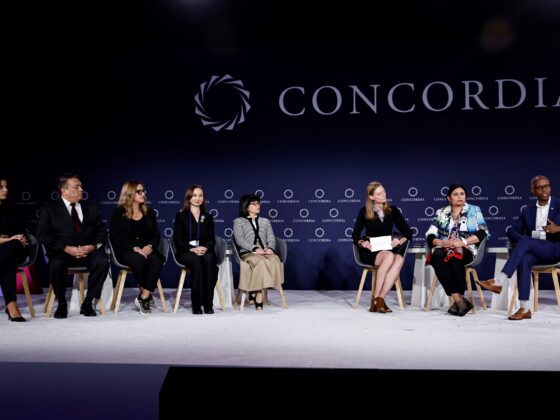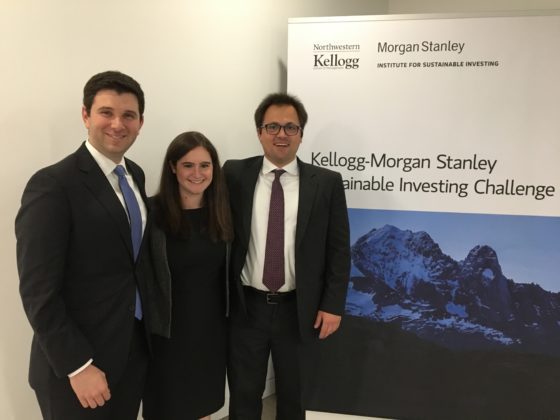“Without memory, there is no culture. Without memory, there would be no civilization, no society, no future.”
~ Elie Wiesel, Nobel Laureate & Holocaust Survivor
Professor Mary Gentile Co-Leads Business School Fellowships at Auschwitz for the Study of Professional Ethics
To prepare students for their future roles as business professionals, many professors and classroom experiences reference examples from former leaders and past history. But none invoke the lessons of the past quite like the Fellowships at Auschwitz for the Study of Professional Ethics (FASPE).
FASPE is a fellowship program for graduate students and early-stage professionals that addresses contemporary ethical issues through the unique historical context of the Holocaust. These fellowships take business, journalism, law, medical and seminary students on a 12-day trip to Germany and Poland — where the actions of professionals during the Holocaust and in Nazi Germany serve as a backdrop for an intensive course of study on the current ethical challenges in their fields. FASPE invokes the power of place — the first-hand experience of visiting Auschwitz and other historic sites — to engage fellows in applying the lessons of history to the ethical issues they face today.
The 2017 FASPE business ethics program was co-led by Darden Professor Mary Gentile, creator/director of the globally-recognized Giving Voice to Values (GVV) curriculum, and Professor Markus Scholz, Endowed Chair of Corporate Governance and Business Ethics at the University of Applied Sciences of the WKW in Vienna. GVV is an innovative approach to values-driven leadership that offers practical exercises, cases, modules, scripts and teaching plans for handling a wide range of ethical conflicts in the workplace.
Darden MBA student Kyle Perez was one of the 12 business students chosen to participate in this year’s program, selected from more than 1,000 applicants around the world.
We recently interviewed Professor Gentile for the first of a two-part series on the unique teaching experiences provided by the FASPE program. A follow-up Q&A will feature the learning environment and lessons as experienced by Mr. Perez.
1) How is the Holocaust relevant to today’s business leaders?
It might seem sometimes that applying lessons from history to current challenges – particularly such a dark and tragic chapter in history as the Holocaust – may be overly simplistic or even exploitative. I must admit that when the FASPE organizers first approached me about bringing my work with “Giving Voice To Values” into their program, I was concerned that trying to talk about contemporary challenges to values-driven leadership development in the context of this horror would feel too jarring, too disconnected for business students and practitioners to be able to draw any meaningful lessons.
However, I decided to give it a try for 2 reasons:
First, at a selfish level, I wanted to “test” my work with GVV. I wanted to see if, in the face of such deep and critical moral challenges, whether GVV even made any difference, any sense.
And second, I realized that when confronted with the terrible ability of human beings to do evil, we all need some lifeline to hang on to, some bread crumb trail to follow, some glimmer of hope and potential moral efficacy…and I wanted to be sure that the participants in FASPE had that lifeline.
2) How does place-based learning and the settings and history of this fellowship add to the teaching experience? How is it different from teaching in a classroom?
Confronting the actual locations, the physical evidence, whether that is a station platform where so many Jews and others boarded trains to their death like Track 17 in Berlin or the disturbingly lovely and serene House of Wannsee where Nazi officials planned the logistics for the “Final Solution,” makes it difficult to relegate the events we are discussing to ‘The Past.’ These places still exist, just as the human impacts and the human motivations that engendered this history still exist.

3) How did the cross-functional aspect of this fellowship (bringing together business, law and journalism students) help enrich the teaching and lessons?
Although many of the FASPE case discussions are conducted within each of the three professions, the travel and visits to historical sites are conducted as a larger group and there are a number of cross-profession discussions as well. This provides a rare opportunity to see ourselves and our work through the eyes of those with whom we often work and whom we sometimes view as potential obstacles to our objectives.
As might be expected, stereotypes and critical assumptions about each other’s work and motivations become visible at times, but the fact that we are in a group of future leaders who all self-selected to develop their ability to act on their values, provides the foundation for a cross-profession dialogue that is all too rare and absolutely essential in an increasingly divided, partisan and trust-challenged world.
4) What are some of the key lessons you try to instill through teaching in the FASPE program?
I want FASPE fellows to recognize that our potential for good and ill is ever present, ever tangible, ever relevant; that the past is never just the past; that our capacity for rationalization and self-deception is large; but also that our capacity for skillful and humane action is just as large, if it is properly developed, honed, rehearsed. And I hope that FASPE fellows can learn that there is strength in their shared experience and commitment; that they are not alone in their desire for values-driven professions; and that they have more CHOICES than they sometimes think.
5) What was the most striking or memorable moment of this year’s FASPE program for you personally?
Although it is always difficult to see fellows fall back into rationalizing less-than-ethical behavior when we discuss current case challenges – even after they have just seen the tragic impacts of such rationalizations – there is an even greater joy in seeing those same fellows rise to the challenge of creative problem-solving around the various Giving Voice to Values conflicts that we discuss. It gives me hope…and I hope it does the same for them! I consider participating in this program to be a rare, extremely difficult, but also terribly valuable honor.
 Professor Mary Gentile is Creator/Director of Giving Voice to Values, Professor of Practice at the University of Virginia Darden School of Business, Senior Advisor at the Aspen Institute Business & Society Program, and consultant on management education and leadership development. Among numerous other awards, Mary was recently named as one of Compliance Week’s “Top Minds 2017,” one of the 2015 “100 Most Influential in Business Ethics” by Ethisphere and one of the “Top Thought Leaders in Trust: 2015 Lifetime Achievement Award Winners” by Trust Across America-Trust Around the World, January 2015.
Professor Mary Gentile is Creator/Director of Giving Voice to Values, Professor of Practice at the University of Virginia Darden School of Business, Senior Advisor at the Aspen Institute Business & Society Program, and consultant on management education and leadership development. Among numerous other awards, Mary was recently named as one of Compliance Week’s “Top Minds 2017,” one of the 2015 “100 Most Influential in Business Ethics” by Ethisphere and one of the “Top Thought Leaders in Trust: 2015 Lifetime Achievement Award Winners” by Trust Across America-Trust Around the World, January 2015.






